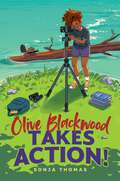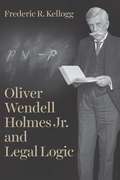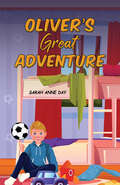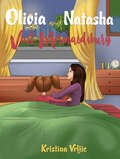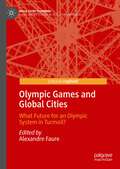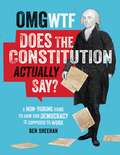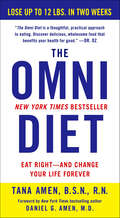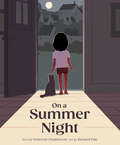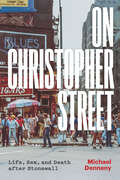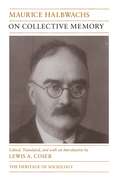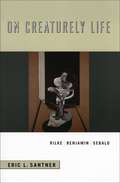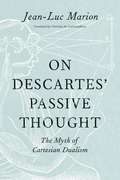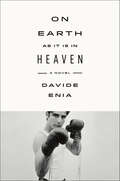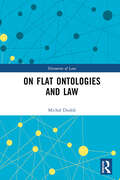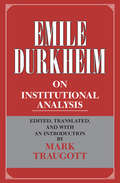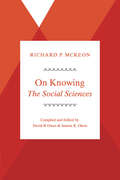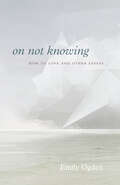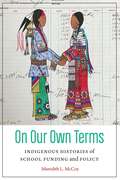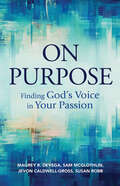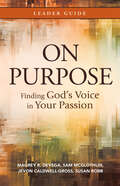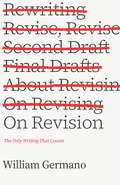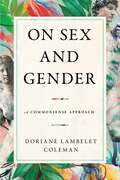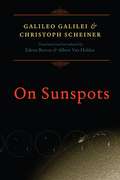- Table View
- List View
Olive Blackwood Takes Action!
by Sonja ThomasAn anxious aspiring filmmaker bands together with an unlikely friend group to protect their beloved state animal in this heartwarming contemporary middle grade novel perfect for fans of Jamie Sumner and Erin Entrada Kelly.Twelve-year-old Olive Blackwood&’s dream is to direct blockbuster fantasy movies, just like her dad wanted to before he died. She decides to apply to the highly competitive Rose City Summer Film Camp with the help of her best friend, Kayla. But Olive isn&’t sure how she can cast the movie when the mere thought of talking to a stranger makes her nervous. Then a surprise project in Olive&’s film class presents her best chance at going to Rose City: the group who makes the best documentary trailer will receive a recommendation to the elite program! But Olive&’s hopes are quickly dashed when she&’s paired with the two worst students in class: loud Jo Willems has a flashy style of dressing just as intimidating as their outspoken opinions and David Moore is even quieter than Olive, fading into the background. It seems impossible for the three of them to find enough common ground to produce something noteworthy. When Olive stumbles across an old lady chasing a beaver with a frying pan, she&’s disturbed to discover it&’s legal to kill beavers in Oregon—which has the animal on the state flag! Olive posts the video she took of the incident, and it goes viral. She wants to raise more awareness, and if she uses her documentary to do it, she could even get the coveted Rose City recommendation at the same time. With the help of unexpected friendship, counseling, and a little everyday magic, can Olive make her voice be heard?
Oliver Wendell Holmes Jr. and Legal Logic
by Frederic R. KelloggWith Oliver Wendell Holmes, Jr. and Legal Logic, Frederic R. Kellogg examines the early diaries, reading, and writings of Justice Oliver Wendell Holmes, Jr. (1841–1935) to assess his contribution to both legal logic and general logical theory. Through discussions with his mentor Chauncey Wright and others, Holmes derived his theory from Francis Bacon’s empiricism, influenced by recent English debates over logic and scientific method, and Holmes’s critical response to John Stuart Mill’s 1843 A System of Logic. Conventional legal logic tends to focus on the role of judges in deciding cases. Holmes recognized input from outside the law—the importance of the social dimension of legal and logical induction: how opposing views of “many minds” may converge. Drawing on analogies from the natural sciences, Holmes came to understand law as an extended process of inquiry into recurring problems. Rather than vagueness or contradiction in the meaning or application of rules, Holmes focused on the relation of novel or unanticipated facts to an underlying and emergent social problem. Where the meaning and extension of legal terms are disputed by opposing views and practices, it is not strictly a legal uncertainty, and it is a mistake to expect that judges alone can immediately resolve the larger issue.
Oliver's Great Adventure
by Sarah Anne DayAre you ready for an adventure? Oliver, a ten-year-old mischief-maker, never anticipated the wild journey ahead. Known for his pranks, especially on his grumpy neighbour, Mr. Johnson, and for leveraging his best friend Benny Green’s shyness for schemes, Oliver’s antics are legendary. At school, his target is Mr. Ramsbottom, earning Oliver a reputation for naughtiness. Yet, beneath the surface, there might be more to Oliver than meets the eye. Is he just misunderstood, or is there a kinder side waiting to be discovered? Join Oliver in an unexpected adventure that could change everything.
Olivia and Natasha Visit Mermaidsburg
by Kristina VrljicOlivia and Natasha are two sisters who happen to be the youngest explorers in the world. One night when both the girls are having trouble falling asleep, a fairy comes to visit and takes them to the ocean where they meet all the wonderful sea creatures and mermaids who live in Mermaidsberg. There, they help the mermaids solve a problem and save all the creature of the sea.
Olympic Games and Global Cities: What Future for an Olympic System in Turmoil? (Mega Event Planning)
by Alexandre FaureThis book offers a comprehensive overview of current debates on the influence of the Olympic Games on cities, urban policies and the governance of global cities, making a valuable contribution to the fields of Olympic studies and urban studies. Historically, Western cities such as Paris, London, and later Los Angeles, have been the primary hosts of the summer Games. However, the link that existed between the world metropolises of the last century and the Games has deeply changed. Growing concerns about the Games' costs and environmental impact have prompted a shift in the expectations of candidate cities and the International Olympic Committee (IOC). This evolution favours more modest bids, and a resurgence of global cities and historical Olympic host cities within the Olympic landscape. This book is an essential resource for researchers in Olympic studies, urban studies, and all those involved in the planning of these events.
OMG WTF Does the Constitution Actually Say?: A Non-Boring Guide to How Our Democracy is Supposed to Work
by Ben SheehanDo you know what the Constitution ACTUALLY says? This witty and highly relevant annotation of our founding document is the go-to guide to how our government really works (or is supposed to work). Written by political savant and entertainment veteran, Ben Sheehan, and vetted for accuracy by experts in the field of constitutional law, OMG WTF Does the Constitution Actually Say? is an entertaining and accessible guide that explains what the Constitution actually lays out.With clear notes and graphics on everything from presidential powers to Supreme Court nominations to hidden loopholes, Sheehan walks us through the entire Constitution from its preamble to its final amendment (with a bonus section on the Declaration of Independence). Besides putting the Constitution in modern-day English so that it can be understood, OMG WTF Does the Constitution Actually Say? gives readers all of the info they need to be effective voters and citizens in the November elections and beyond.
The Omni Diet: The Revolutionary 70% Plant + 30% Protein Program To Lose Weight, Reverse Disease, Fight Inflammation, And Change Your Life Forever
by Tana AmenBy the time she had reached her mid-30s, Tana Amen had nearly given up on good health. Through a lifetime of chronic medical ailments, including severe digestive issues, recurrent infections and, most devastatingly, a battle with thyroid cancer, there was never a point when Tana felt consistently healthy. Doctors ascribed her poor health to genetics, bad luck, and a family history of obesity and heart disease. But even when Tana committed to a standard fitness and eating regimen, her health failed to improve.That's when she realized that she needed to make a real change. She needed to figure out how to improve her health . . . for good.The Omni Diet is the culmination of a decade-long quest by Tana Amen to study the relationship between food and the body, and to understand how proper nutrition not only impacts weight loss, but actually holds the key to reversing chronic disease, decreasing inflammation, healing the body, and dramatically improving quality of life. So what is The Omni Diet? It's an easy-to-follow plan based on a 70/30 plant-to-protein model. This is not a restrictive diet or another page in the high-protein vs. vegetarian diet wars, but a universal map to better health, one that Tana has distilled into a lean six-week program. It offers a simple plan that provides an abundance of illness-fighting nutrients from plant-based foods and high-quality protein to keep the brain sharp and muscles and organs functioning at peak condition. The balance of 70% plant-based foods and 30% protein restores energy, slashes risk of disease, optimizes brain and hormone functioning, produces dramatic weight loss, and promotes health from the inside out. With delicious and satisfying recipes, easy-to-follow exercises, and important advice and tips, you will see results -- in your weight and overall health – immediately. Follow this revolutionary, paradigm-shifting plan and experience its life-changing results as you unleash the healing power of food.
Omnibus 3 - Tot die dood ons skei - Altyd die verkeerde man - Melktert en Kaviaar
by Elsa Hamersma Malene Breytenbach Annelize MorganMelodie: vir jonk, vir oud, vir altyd; Daar is nie 'n groter vreugd as die wete dat jou liefde vir iemand beantwoord word nie.
On a Summer Night
by Deborah HopkinsonStep into the quiet magic of this celebration of summer nighttime and the mystery of a world lit differently by the moon.On a summer night, the world is still. Even the crickets think it’s too hot to sing. But all at once, a girl wakes. In the kitchen, the cat rolls onto its soft paws. A neighbor’s small white dog yaps, a brown rabbit peeks from a hedge, and the leaves of a cherry tree begin to stir in the breeze. Readers witness and wonder: Who has woken them all? In this soothing bedtime story, the quiet of a warm summer night is brought to vivid, magical life with the soft steps of bare feet, the padding of paws, and the bright, golden light of the moon. One by one, each creature is roused and then gently returned to sleep in a lovely and lyrical exploration of wakefulness, restfulness, and the mysterious calm of the night.PERFECT FOR BEDTIME . . . OR ANYTIME: This beautifully illustrated children's book is ideal for soothing young readers to sleep—or encouraging a contemplative break in an energetic day. The story’s engagement with the wonders of nighttime will help children feel comforted by the dark and the prospect of going to sleep rather than afraid of them.READ-ALOUD READINESS: With its lyricism and short refrains, this gentle story is just right for sharing.CONNECTION TO NATURE: This magical book gradually reveals the moon as a character as it wakes girl, cat, dog, rabbit, tree, air, and cloud in turn—and connects them to one another through the welcoming quiet and wonder of a world gilded by moonlight.THE POWER OF SLOWING DOWN: Picture books are often wonderful excuses to slow down and share a moment of gentleness in kids' (and parents') busy lives; this book feels like a deep breath and offers a chance to wonder and reflect.Perfect for:Kids who can't sleep on hot summer nightsParents, grandparents, and caregivers seeking a sweet bedtime bookLibrarians and storytime leaders looking for a summer read-aloudGift givers who want to share a beautiful, lyrical book with someone specialReaders of such classic bedtime stories for kids as Goodnight Moon and The Going to Bed Book
On Christopher Street: Life, Sex, and Death after Stonewall
by Michael DennenyThrough the eyes of publishing icon Michael Denneny, this cultural autobiography traces the evolution of the US’s queer community in the three decades post-Stonewall. The Stonewall Riots of 1969 and the AIDS crisis of the 1980s have been captured in minute detail, and rightly memorialized in books, on tv, and in film as pivotal and powerful moments in queer history. Yet what about the moments in between—the tumultuous decade post-Stonewall when the queer community’s vitality and creativity exploded across the country, even as the AIDS crisis emerged? Michael Denneny was there for it all. As a founder and editor of the wildly influential magazine Christopher Street and later as the first openly gay editor at a major publishing house, Denneny critically shaped publishing around gay subjects in the 1970s and beyond. At St. Martin’s Press, he acquired a slew of landmark titles by gay authors—many for his groundbreaking Stonewall Inn Editions—propelling queer voices into the mainstream cultural conversation. On Christopher Street is Denneny’s time machine, going back to that heady period to lay out the unfolding geographies and storylines of gay lives and capturing the raw immediacy of his and his contemporaries’ daily lives as gay people in America. Through forty-one micro-chapters, he uses his journal writings, articles, interviews, and more from the 1970s and ‘80s to illuminate the twists and turns of a period of incomparable cultural ferment. One of the few surviving voices of his generation, Denneny transports us back in time to share those vibrant in-between moments in gay lives—the joy, sorrow, ecstasy, and energy—across three decades of queer history.
On Collective Memory (The Heritage of Sociology)
by Maurice HalbwachsHow do we use our mental images of the present to reconstruct our past? Maurice Halbwachs (1877-1945) addressed this question for the first time in his work on collective memory, which established him as a major figure in the history of sociology. This volume, the first comprehensive English-language translation of Halbwach's writings on the social construction of memory, fills a major gap in the literature on the sociology of knowledge.Halbwachs' primary thesis is that human memory can only function within a collective context. Collective memory, Halbwachs asserts, is always selective; various groups of people have different collective memories, which in turn give rise to different modes of behavior. Halbwachs shows, for example, how pilgrims to the Holy Land over the centuries evoked very different images of the events of Jesus' life; how wealthy old families in France have a memory of the past that diverges sharply from that of the nouveaux riches; and how working class construction of reality differ from those of their middle-class counterparts. With a detailed introduction by Lewis A. Coser, this translation will be an indispensable source for new research in historical sociology and cultural memory. Lewis A. Coser is Distinguished Professor of Sociology Emeritus at the State University of New York and Adjunct Professor of Sociology at Boston College.
On Creaturely Life: Rilke, Benjamin, Sebald
by Eric L. SanterIn his Duino Elegies, Rainer Maria Rilke suggests that animals enjoy direct access to a realm of being—the open—concealed from humans by the workings of consciousness and self-consciousness. In his own reading of Rilke, Martin Heidegger reclaims the open as the proper domain of human existence but suggests that human life remains haunted by vestiges of an animal-like relation to its surroundings. Walter Benjamin, in turn, was to show that such vestiges—what Eric Santner calls the creaturely—have a biopolitical aspect: they are linked to the processes that inscribe life in the realm of power and authority. Santner traces this theme of creaturely life from its poetic and philosophical beginnings in the first half of the twentieth century to the writings of the enigmatic German novelist W. G. Sebald. Sebald’s entire oeuvre, Santner argues, can be seen as an archive of creaturely life. For Sebald, the work on such an archive was inseparable from his understanding of what it means to engage ethically with another person’s history and pain, an engagement that transforms us from indifferent individuals into neighbors. An indispensable book for students of Sebald, On Creaturely Life is also a significant contribution to critical theory.
On Descartes' Passive Thought: The Myth of Cartesian Dualism
by Jean-Luc Marion,On Descartes’ Passive Thought is the culmination of a life-long reflection on the philosophy of Descartes by one of the most important living French philosophers. In it, Jean-Luc Marion examines anew some of the questions left unresolved in his previous books about Descartes, with a particular focus on Descartes’s theory of morals and the passions. Descartes has long been associated with mind-body dualism, but Marion argues here that this is a historical misattribution, popularized by Malebranche and popular ever since both within the academy and with the general public. Actually, Marion shows, Descartes held a holistic conception of body and mind. He called it the meum corpus, a passive mode of thinking, which implies far more than just pure mind—rather, it signifies a mind directly connected to the body: the human being that I am. Understood in this new light, the Descartes Marion uncovers through close readings of works such as Passions of the Soul resists prominent criticisms leveled at him by twentieth-century figures like Husserl and Heidegger, and even anticipates the non-dualistic, phenomenological concepts of human being discussed today. This is a momentous book that no serious historian of philosophy will be able to ignore.
On Earth As It Is in Heaven: A Novel
by Davide EniaA dark, gripping coming-of-age tale that explores violence, friendship, family, and what it means to be a manSummer, Palermo, early 1980s. The air hangs hot and heavy. The Mafia-ruled city is a powder keg ready to ignite. In a boxing gym, a fatherless nine-year-old boy climbs into the ring to face his first opponent.So begins On Earth as It Is in Heaven, a sweeping multigenerational saga that reaches back to the collapse of the Italian front in North Africa and forward to young Davidù's quest to become Italy's national boxing champion, a feat that has eluded the other men of his family.But Davide Enia, whose layered, lyrical, nonchronological novel caused a sensation when it was published in Italy in 2012, has crafted an epic that soars in miniature as well. The brutal struggles for dominance among Davidù's all male circle of friends; his strict but devoted grandmother, whose literacy is a badge of honor; his charismatic and manipulative great-uncle, who will become his trainer—the vicious scenes and sometimes unsympathetic characters Enia sketches land hard and true.On Earth as It Is in Heaven is both firmly grounded in what Leonardo Sciascia liked to call "Sicilitude" - the language and mentality of that eternally perplexing island - and devastatingly universal. A meditation on physical violence, love and sex, friendship and betrayal, boxing and ambition, Enia's novel is also a coming-of-age tale that speaks - sometimes crudely, but always honestly - about the joys and terrors of becoming a man.
On Flat Ontologies and Law (ISSN)
by Michał DudekThis book examines the importance of flat ontologies for law and sociolegal theory. Associated with the emergence of new materialism in the humanities and social sciences, the elaboration of flat ontologies challenges the binarism that has maintained the separation of culture from nature, and the human from the nonhuman. Although most work in legal theory and sociolegal studies continues to adopt a non-flat, anthropocentric and immaterial take on law, the critique of this perspective is becoming more and more influential. Engaging the increasing legal interest in flat ontologies, this book offers an account of the main theoretical perspectives, and their importance for law. Covering the work of the five major theorists in the area – Gabriel Tarde, Bruno Latour, Manuel DeLanda, Karen Barad and Graham Harman – the book aims to encourage this interest, as well as to explicate the important problems of and differences between these perspectives. Flat ontologies, the book demonstrates, can offer a valuable new perspective for understanding and thinking about law.This book will appeal mainly to scholars and students in legal theory and sociolegal studies; as well as others with interests in the posthumanist turn in philosophy and social theory.
On Institutional Analysis (Heritage Of Sociology Ser.)
by Emile DurkheimRanging from Durkheim's original lecture in sociology to an excerpt from the work incomplete at his death, these selections illuminate his multiple approaches to the crucial concept of social solidarity and the study of institutions as diverse as the law, morality, and the family. Durkheim's focus on social solidarity convinced him that sociology must investigate the way that individual behavior itself is the product of social forces. As these writings make clear, Durkheim pursued his powerful model of sociology through many fields, eventually synthesizing both materialist and idealist viewpoints into his functionalist model of society.
On Knowing: The Social Sciences
by Richard P. McKeonAs a philosopher, Richard McKeon spent his career developing Pragmatism in a new key, specifically by tracing the ways in which philosophic problems arise in fields other than philosophy—across the natural and social sciences and aesthetics—and showed the ways in which any problem, pushed back to its beginning or taken to its end, is a philosophic problem. The roots of this book, On Knowing—The Social Sciences, are traced to McKeon’s classes where he blended philosophy with physics, ethics, politics, history, and aesthetics. This volume—the second in a series—leaves behind natural science themes to embrace freedom, power, and history, which, McKeon argues, lay out the whole field of human action. The authors McKeon considers—Hobbes, Machiavelli, Spinoza, Kant, and J. S. Mill—show brilliantly how philosophic methods work in action, via analyses that do not merely reduce or deconstruct meaning, but enhance those texts by reconnecting them to the active history of philosophy and to problems of ethics, politics, and history. The waves of modernism and post-modernism are receding. Philosophic pluralism is now available, fully formulated, in McKeon’s work, spreading from the humanities to the social sciences.
On Not Knowing: How to Love and Other Essays
by Emily OgdenA beautifully written suite of personal essays on the value of not knowing. Moments of clarity are rare and fleeting; how can we become comfortable outside of them, in the more general condition of uncertainty within which we make our lives? Written by English professor Emily Ogden while her children were small, On Not Knowing forays into this rich, ambivalent space. Each of her sharply observed essays invites the reader to think with her about questions she can’t set aside: not knowing how to give birth, to listen, to hold it together, to love. Unapologetically capacious in her range of reference and idiosyncratic in the canon she draws on, Ogden moves nimbly among the registers of experience, from the operation of a breast pump to the art of herding cattle; from one-night stands to the stories of Edgar Allan Poe; from kayaking near a whale to a psychoanalytic meditation on drowning. Committed to the accumulation of knowledge, Ogden nonetheless finds that knowingness for her can be a way of getting stuck, a way of not really living. Rather than the defensiveness of willful ignorance, On Not Knowing celebrates the defenselessness of not knowing yet—possibly of not knowing ever. Ultimately, this book shows how resisting the temptation of knowingness and embracing the position of not knowing becomes a form of love.
On Othering: Processes and Politics of Unpeace (Global Peace Studies)
by Yasmin Saikia Chad HainesIn every sphere of life, division and intolerance has polarized communities and entire nations. The learned construction of the Other—an evil “enemy” against whom both physical and discursive violence is deemed acceptable—has fractured humanity, creating divisions that seemingly defy reconciliation. How do we restore the bonds of connection among human beings? How do we shift from polarization to peace? On Othering: Processes and Politics of Unpeace examines the process of othering from an international perspective and considers how it undermines peacemaking and is perpetuated by colonialism and globalization. Taking a humanistic approach, contributors argue that celebrating difference can have a transformative change in seeking peaceful solutions to problems created by people, institutions, ideas, conditions, and circumstances. Touching on race, gender, sexuality, nationalism, and our relationship with the natural world, this volume attends to the deep injustices brought about by othering and recommends actions for mending the relationships that are essential to renewing the possibility of peace.
On Our Own Terms: Indigenous Histories of School Funding and Policy (Indigenous Education)
by Meredith McCoyOn Our Own Terms contextualizes recent federal education legislation against the backdrop of two hundred years of education funding and policy to explore two critical themes: the racial and settler colonial dynamics that have shaped Indian education and an equally long and persistent tradition of Indigenous peoples engaging schools, funding, and policy on their own terms. Focusing primarily on the years 1819 to 2018, Meredith L. McCoy provides an interdisciplinary, methodologically expansive look into the ways federal Indian education policy has all too often been a tool for structural violence against Native peoples. Of particular note is a historical budget analysis that lays bare inconsistencies in federal support for Indian education and the ways funds become a tool for redefining educational priorities. McCoy shows some of the diverse strategies families, educators, and other community members have used to creatively navigate schooling on their own terms. These stories of strategic engagement with schools, funding, and policy embody what Gerald Vizenor has termed survivance, an insistence of Indigenous presence, trickster humor, and ironic engagement with settler structures. By gathering these stories together into an archive of survivance stories in education, McCoy invites readers to consider ongoing patterns of Indigenous resistance and the possibilities for bending federal systems toward community well-being.
On Purpose: Finding God's Voice in Your Passion
by Susan Robb Sam McGlothlin Jevon Caldwell-Gross Magrey deVegaBe part of something more.We are hungry for a sense of purpose, direction, and calling in our lives. That’s as basic an ingredient to the human experience as they come. We want to be part of something bigger than ourselves. We want to participate in something that has eternal merit and lasting impact. We do not want to live a shallow, hollow existence. We yearn for deeper meaning, for deeper purpose within our lives. We want to be more than we are.In On Purpose: Finding God’s Voice in Your Passion, authors Magrey deVega, Sam McGlothlin, Jevon Caldwell-Gross, and Susan Robb help us see God's purpose for our lives, how to open ourselves to God's voice, and how to take the first or next step to follow God's call. Reading this book and exploring life choices alongside others, individuals will learn how to channel their passions, hear God’s voice, and live the life they were meant to live.To support reading in a group, resources including a full leader’s guide and DVD with four teaching sessions are also available.
On Purpose Leader Guide: Finding God's Voice in Your Passion
by Susan Robb Sam McGlothlin Jevon Caldwell-Gross Magrey deVegaBe part of something more.We are hungry for a sense of purpose, direction, and calling in our lives. That’s as basic an ingredient to the human experience as they come. We want to be part of something bigger than ourselves. We want to participate in something that has eternal merit and lasting impact. We do not want to live a shallow, hollow existence. We yearn for deeper meaning, for deeper purpose within our lives. We want to be more than we are.In On Purpose: Finding God’s Voice in Your Passion, authors Magrey deVega, Sam McGlothlin, Jevon Caldwell-Gross, and Susan Robb help us see God's purpose for our lives, how to open ourselves to God's voice, and how to take the first or next step to follow God's call. As you read this book and explore your life alongside others, you’ll learn how to channel your passions, hear God’s voice, and live the life you were meant to live.The Leader Guide contains everything needed to guide a group through the four-week study, including session plans, activities, discussion questions, and multiple format options.Additional components for the four-week small group study include the book and DVD/Video Sessions featuring the authors.
On Revision: The Only Writing That Counts (Chicago Guides to Writing, Editing, and Publishing)
by William GermanoA trusted editor turns his attention to the most important part of writing: revision. So you’ve just finished writing something? Congratulations! Now revise it. Because revision is about getting from good to better, and it’s only finished when you decide to stop. But where to begin? In On Revision, William Germano shows authors how to take on the most critical stage of writing anything: rewriting it. For more than twenty years, thousands of writers have turned to Germano for his insider’s take on navigating the world of publishing. A professor, author, and veteran of the book industry, Germano knows what editors want and what writers need to know: Revising is not just correcting typos. Revising is about listening and seeing again. Revising is a rethinking of the principles from the ground up to understand why the writer is doing something, why they’re going somewhere, and why they’re taking the reader along with them.On Revision steps back to take in the big picture, showing authors how to hear their own writing voice and how to reread their work as if they didn’t write it. On Revision will show you how to know when your writing is actually done—and, until it is, what you need to do to get it there.
On Sex and Gender: A Commonsense Approach
by Doriane Lambelet ColemanAn eye-opening account of what the left and right get wrong about sex and gender—and how we can be a thoughtful, sex-smart society.On Sex and Gender focuses on three sequential and consequential questions: What is sex as opposed to gender? How does sex matter in our everyday lives? And how should it be reflected in law and policy? All three have been front-and-center in American life and politics since the rise of the trans rights movement: They are included in both major parties&’ political platforms. They are the subject of ongoing litigation in the federal courts and of highly contentious legislation on Capitol Hill. And they are a pivotal issue in the culture wars between left and right playing out around dinner tables, on campuses and school boards, on op-ed pages, and in corporate handbooks. Doriane Coleman challenges both sides to chart a better way. In a book that is equal parts scientific explanation, historical examination, and personal reflection, she argues that denying biological sex and focusing only on gender would have detrimental effects on women&’s equal opportunity, on men&’s future prospects, and on the health and welfare of society. Structural sexism needed to be dismantled—a true achievement of feminism and an ongoing fight—but going forward we should be sex smart, not sex blind. This book is a clear guide for reasonable Americans on sex and gender—something everyone wants to understand but is terrified to discuss. Coleman shows that the science is settled, but equally that there is a middle ground where common sense reigns and we can support transgender people without denying the facts of human biology. She livens her narrative with a sequence of portraits of exceptional human beings from legal pioneers like Myra Bradwell and Ketanji Brown Jackson to champion athletes like Caster Semenya and Cate Campbell to civil rights giants like Ruth Bader Ginsburg and Pauli Murray. Above all, Coleman reminds us that sex not only exists, but is also good—and she shows how we can get both sex and gender right for society.
On Sunspots
by Galileo Galilei Christoph ScheinerGalileo’s telescopic discoveries, and especially his observation of sunspots, caused great debate in an age when the heavens were thought to be perfect and unchanging. Christoph Scheiner, a Jesuit mathematician, argued that sunspots were planets or moons crossing in front of the Sun. Galileo, on the other hand, countered that the spots were on or near the surface of the Sun itself, and he supported his position with a series of meticulous observations and mathematical demonstrations that eventually convinced even his rival. On Sunspots collects the correspondence that constituted the public debate, including the first English translation of Scheiner’s two tracts as well as Galileo’s three letters, which have previously appeared only in abridged form. In addition, Albert Van Helden and Eileen Reeves have supplemented the correspondence with lengthy introductions, extensive notes, and a bibliography. The result will become the standard work on the subject, essential for students and historians of astronomy, the telescope, and early modern Catholicism.
